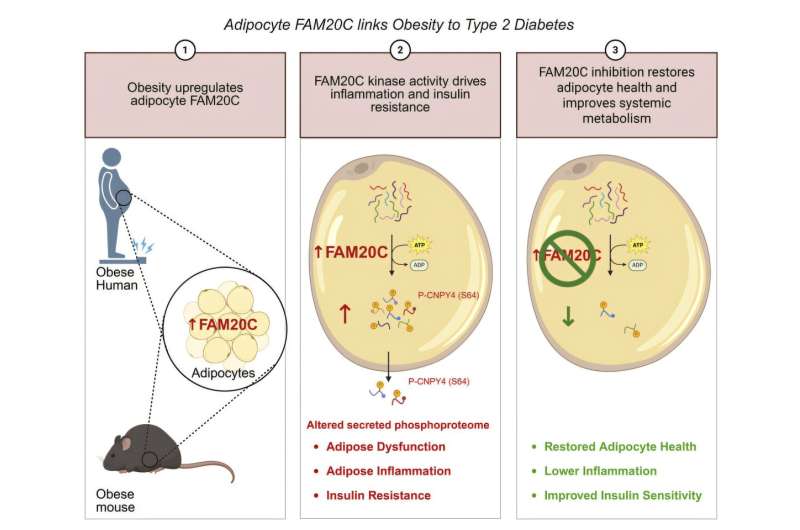The findings, published in the Journal of Clinical Investigation, show that a protein called FAM20C acts as a switch that turns on inflammation and insulin resistance in the fat cells of overweight mice. Genetic techniques to remove or block the FAM20C gene in animals improved their metabolic health, reduced inflammation and increased insulin sensitivity, even when the animals lost no weight.
“By inhibiting or getting rid of FAM20C in fat cells, the mice became healthier even at the same body weight,” said the study’s senior author, Dr. James Lo, the Rohr Family Clinical Scholar and an associate professor of medicine at Weill Cornell Medicine.
“Their fat becomes metabolically healthier, reducing harmful inflammation in fat cells that can lead to chronic diseases like type 2 diabetes, fatty liver disease and heart disease.”

